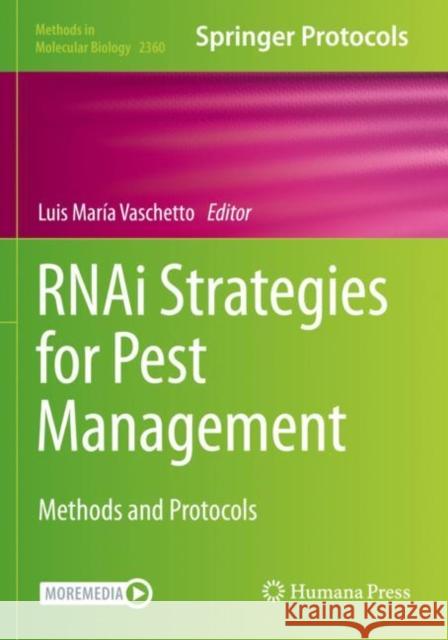RNAi Strategies for Pest Management: Methods and Protocols » książka
topmenu
RNAi Strategies for Pest Management: Methods and Protocols
ISBN-13: 9781071616352 / Angielski / Miękka / 2022
This volume explores the latest techniques used for sustainable development of eco-friendly pest management systems. Chapters in this book look at the design of novel RNAi-mediated pest control strategies and related issues. Some of the topics covered in this book are identification and characterization of differentially expressed non-coding RNAs in insect genomes; functional small RNA design; analysis of endogenous RNAi pathways; RNAi screening; plant models of RNAi-mediated pest control; and dsRNA delivery. Written in the highly successful Methods in Molecular Biology series format, chapters include introductions to their respective topics, lists of the necessary materials and reagents, step-by-step, readily reproducible laboratory protocols, and tips on troubleshooting and avoiding known pitfalls.
Cutting-edge and comprehensive, RNAi Strategies for Pest Management: Methods and Protocols is a valuable resource for any scientist or researcher interested in learning more about this exciting and developing field.
Chapter 18 is available open access under a Creative Commons Attribution 4.0 International License via link.springer.com.











